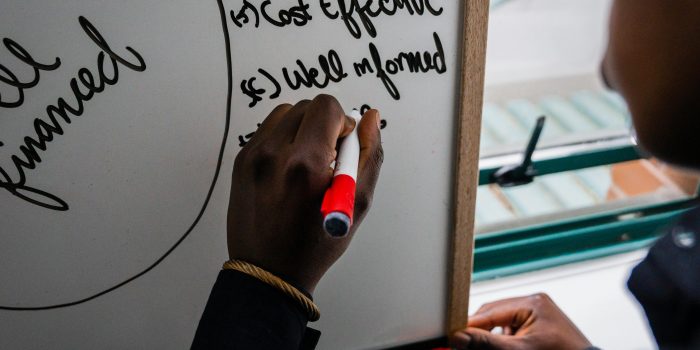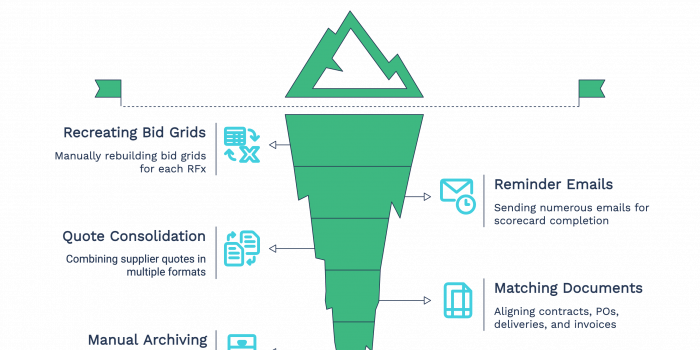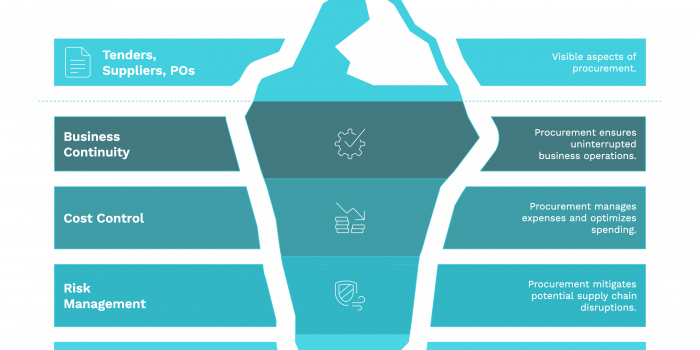How to Start Winning Government Tenders in Kenya
As a Kenyan entrepreneur, you now have the ability to start tipping this balance in your favor by using technology to fully streamline your entire tender management and response preparation process.

For the longest time, the public procurement space in Africa has been a preserve for a select few who have since become largely established companies and now dominating trade by winning most government tenders.
Furthermore, the complex technical jargon, long page documents and upfront financial requirements do not really create a good perception about tendering to many people. These, among other factors, are currently responsible for hindering SMEs from noticing and taking advantage of the numerous opportunities available across the public sector.

The most vibrant and stable economies are powered by SMEs that are actively growing and employing more people thereby contributing to the country’s GDPs in a constructive and sustainable way. Evidently, this is a major missing link within emerging economies across the developing world.
To address this shortcoming in Kenya, the Government put in place a preferential procurement policy where 30% of all public procurement was set aside for the youth, women and persons with disabilities (PWDs) under the Access to Government Procurement Programme (AGPO).
For us, this was exciting news because it meant that each year, there would be at least USD 3 billion worth of government tenders that were specifically reserved for AGPO-certified companies to win!
As of January 2019, out of a possible USD 15 billion worth of opportunities set aside for Small and Medium Enterprises (SMEs) since 2013 under the Access to Government Procurement Programme (AGPO), only USD 1.048 billion had been won, which is less than 10%.
Why are SMEs still not winning government tenders?
The resources needed today to develop a competitive bid for a government contract as well as the fixed costs associated with the administration have traditionally given large businesses an advantage over smaller ones.
There are many other potential upfront cost-related barriers that continue to limit the ability of SMEs to participate in the procurement process. These costs, due to economies of scale, are also higher in small firms than in medium-size and large firms and are spread out through the entire tendering stages involved.
While building Scale over the last 3 years, we conducted numerous user interviews with diverse entrepreneurs and business owners in Kenya (and backed this using externally sourced data), and discovered that there largely still exists specific barriers and market failures that continue to make it difficult for SMEs to actively and successfully participate in procurement processes.
Beyond costs, these barriers and failures generally take the form of information, finance, regulatory and capacity obstacles that have become institutionalized especially within public procurement.
As an entrepreneur, what can I do?
Two most critical steps are to organize your internal processes when it comes to sourcing for public procurement opportunities and standardizing the process of preparing your responses despite the size of your team.
In Kenya, majority tender opportunities are publicly listed and the RFP/RFQ documents can be accessed for free. But how do you know when an opportunity that fits your business is available for you to apply considering most tenders are usually open for only 2 weeks? A manual process of doing this search will not suffice. You need to set an automated way in which you can get daily and weekly alerts for you and your team.
Secondly, it’s still shocking to know that almost 80% of all tender responses are disqualified during the very first evaluation stage due to minor technicalities such as labeling of the document, serialization of the pages or a missing tax compliance certificate. What can be done to keep documents up to date? How does one ensure each single document in the final proposal is the correct one and always accurate?
What Scale does for you

Throughout the Pre-bidding, Application and Selection Stages of the tendering life-cycle, Scale simplifies and digitizes the tender application process thereby assisting SMEs to move away from the chaos that is brought about by the current tendering process into an orderly process. This, we believe, will create the critical starting point for SMEs and entrepreneurs to learn and grow more confident in pitching for more jobs than they currently do or have access to.
At Scale, we understand that SMEs have an extremely huge potential for job creation, growth and innovation and the strong involvement of SMEs in public procurement allows for unlocking this potential for the economy. We want to considerably broaden the potential supplier base for procuring entities and in the process enhance competition on public contracts and counterbalancing dominant market players.
As an entrepreneur, you now have access to a platform that is fully designed to ease and structure your workflow when it comes to discovering and applying for more business opportunities. Start winning government tenders while at the same time, learning more about tendering and procurement in Kenya.
Let’s break down those barriers together. Join Scale.








